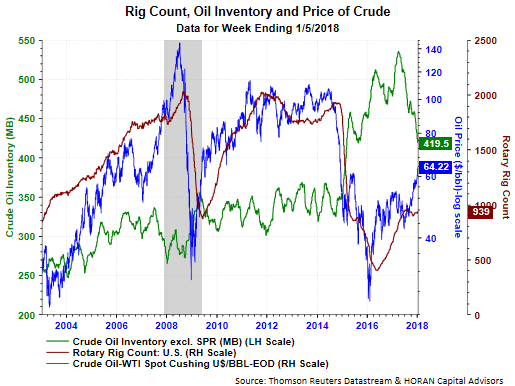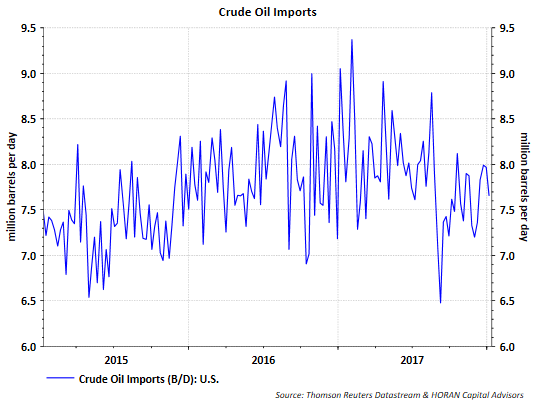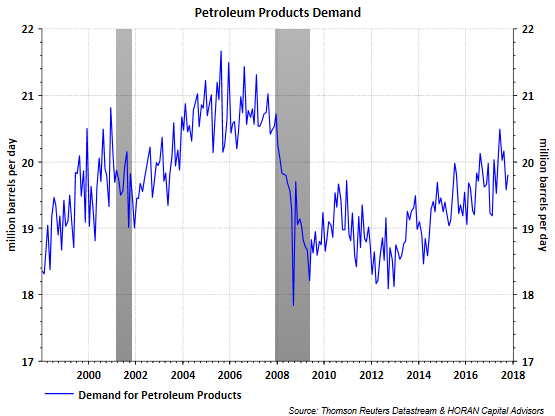In May 2011 crude oil (WTI) hit $113 per barrel and remained elevated at or near that level until the summer of 2014. Given the high price of crude and the expansion of fracking at that time, crude supply continued to grow until peaking in mid 2017. I wrote about the high crude supply level in mid 2017 and its impact on keeping oil prices down, Higher Oil Prices Contend With Too Much Supply And Higher Energy Efficiency. Today, we are seeing crude oil inventory decline at a fairly rapid rate as can be seen with the green line in the below chart.

Although rig count has increased from its June 2014 low (maroon line above), the rig count has remained relatively stable to down slightly since the summer of last year, which has helped stem the growth in supply. Two additional factors contributing to the decline in supply is the reduction of crude oil imports into the U.S., down almost 2 million barrels per day versus a year ago, along with growth in the demand for petroleum products of about 1 million barrels per day versus the same time last year as seen in the two charts below.


With supply and demand nearing a more reasonable balance, the question becomes whether or not producers can maintain discipline and not over supply the market. As noted in Econoday’s report earlier this week after the release of the EIA Weekly Petroleum Status Report (PDF):
“Dampened imports and strong domestic demand have more than offset the impact of increased domestic production and brought bloated inventories down to the middle of the average range for this time of year. But with crude oil prices above $63 per barrel and domestic shale oil breakeven costs far below that price, supply from the nearly inevitable new domestic production may swell inventories again during the new year.”
History suggests producers will increase production given the higher price of oil currently. This would potentially lead to increasing oil inventory levels and hence place downward pressure on oil prices. An unknown is the impact on oil demand resulting from a potentially faster economic growth rate in the economy on the back of Tax Reform legislation recently passed by Congress.











Leave A Comment